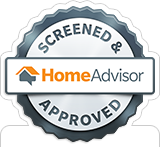Serving the Philadelphia Metro region and New Jersey
10 Things You Should Know
- Health risks and symptoms associated with mold exposures include allergies, asthma, sinusitis and other respiratory complaints.
- Mold is found in both the indoor and outdoor environments. If you want to prevent unhealthy build-up of mold you have to control the moisture levels in your home.
- If mold becomes a problem in your home or business, you must take steps to immediately eliminate the mold and all sources of moisture.
- All indoor plumbing leaks, condensation problems and water proofing issues must be corrected to prevent unwanted moisture.
- Indoor humidity levels must be kept below 55%. Take steps to vent dryers, bathrooms, and other moisture-generating sources to the outside. Use dehumidifiers and air conditioners; be sure to increase ventilation and use exhaust fans whenever cooking, dishwashing, and cleaning.
- Clean and dry any moist or wet furnishings and building materials within 24-48 hours to prevent the growth of mold.
- Take care to clean mold off hard surfaces with water and detergent; make sure the surface is dried completely. Consider replacing porous materials such as ceiling tiles that show signs of mold.
- The proper use of insulation to prevent the build-up of condensation will reduce moisture issues.
- In areas where there may be a constant moisture problem such as bathroom floors, basement floors or indoor/outdoor rooms, do not install carpeting as it can harbor moisture.
- Molds are found almost anywhere; they can grow on almost any substance if moisture is present. Molds can grow on paper, carpet, wood, and foods.
MOLD INSPECTION AND REMEDIATION IN NEW JERSEY & PENNSYLVANIA
SERVING BUCKS, CHESTER, DELAWARE AND MONTGOMERY COUNTIES
COMMERCIAL & RESIDENTIAL MOLD TESTING AND MOLD REMOVAL IN PA & NJ
SERVING BUCKS, CHESTER, DELAWARE AND MONTGOMERY COUNTIES
COMMERCIAL & RESIDENTIAL MOLD TESTING AND MOLD REMOVAL IN PA & NJ









